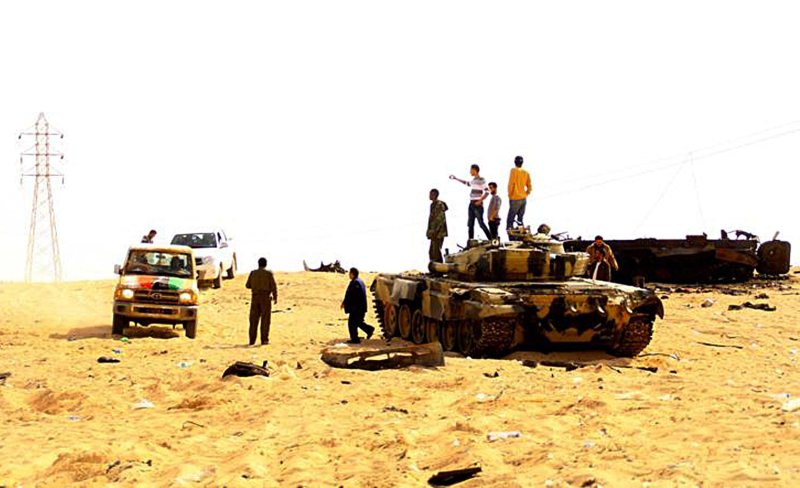Libyans stand on a destroyed tank belonging to leader Moamer Kadhafi forces celebrating at the west gate of Ajdabiya on March 26, 2011, as Libyan rebels seized control of this strategic city marking their first significant victory over Colonel Kadhafi's forces since the launch of the Western-led air strikes a week ago. UPI\Mohamad shukhi. |
License Photo
GENEVA, Switzerland, April 7 (UPI) -- Unexploded ordnance and destroyed armored vehicles are a common part of the landscape during the Libyan conflict, the International Red Cross warned.
Middle Eastern and Western military forces intervened in Libya after the United Nations sanctioned action to protect unarmed civilians from fighters loyal to Moammar Gadhafi.
Rebel forces backed by a no-fly zone enforced by coalition forces are struggling to hold their ground against well-equipped, pro-Gadhafi fighters. The International Committee of the Red Cross warned, however, that many of the civilians in Libya are threatened by weapon contamination.
Srdjan Jovanovic, an ICRC weapon contamination specialist, said much of the countryside in Libya is strewn with unexploded munitions and wrecked military vehicles.
"Unexploded ordnance and destroyed armored vehicles are now very much part of the landscape," he said in a statement. "The risk for the civilian population is clear, especially as there are many conflict zones in the country."
The ICRC said the Libyan borders with Egypt, Chad and Tunisia are littered with mines and unexploded munitions dating to the 1970s. Ongoing use of land mines is an unconfirmed threat, the aid agency noted.
"Everyone living in areas affected by fighting should be aware of the risk posed by explosive remnants of war," added Jovanovic.





